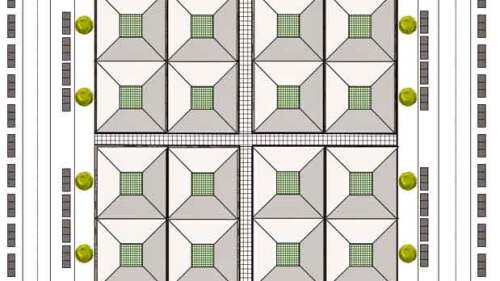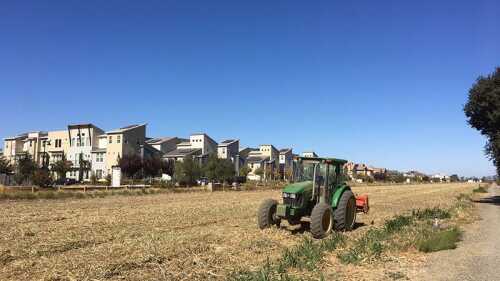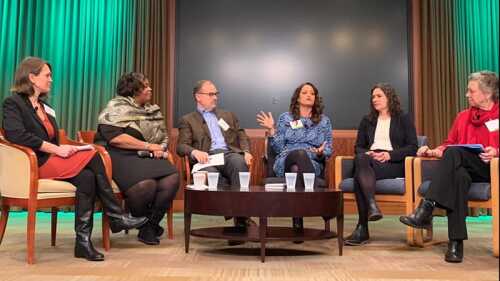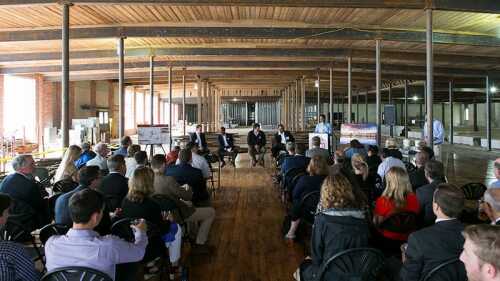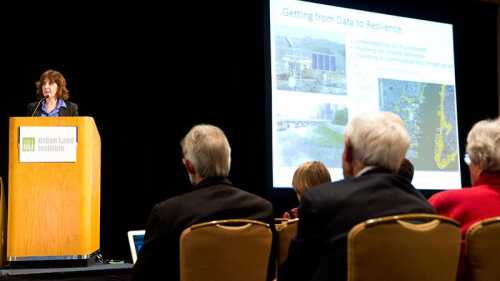Projects – Small Scale
Since the publication of Building Small: A Toolkit for Real Estate Entrepreneurs, Civic Leaders, and Great Communities in 2021, author and developer Jim Heid has continued to grow the building Small movement. Last year, he launched a free-yet-private online platform that serves as an interactive network where like minds solve the big problems of building Small.
“Atrium quads” can provide private, secure, spacious, flexible, single-family urban living at densities comparable to those provided by garden apartments.
Farm-centric master-planned communities are a hit with buyers, but it takes skill and planning to keep the agriculture in bloom.
Stakeholders who have worked to push for more affordable housing know firsthand that it can often be a contentious issue. But what if there were a way to avoid strategies that “backfire” and instead leverage more effective messaging to build public will and get people excited about providing high-quality housing for everyone? Advocates for more affordable housing described what methods are working for them, including the recent zoning changes in Minneapolis, at a recent ULI Minnesota event.
At a ULI Triangle event in April, representatives of North Carolina’s Capitol Broadcasting Company shared the firm’s plans to redevelop a historic cotton mill, ultimately shifting the fortunes of the town of Rocky Mount.
ULI will hold its 2018 Spring Meeting May 1–3 at the Cobo Center in Detroit. A major focus for this year’s gathering will be the reinvention of urban areas into thriving places that are drawing talented workers and becoming magnets for investment.
Officials in West Palm Beach, Florida—located in a region that boasts some of the wealthiest residents in the world—have made strides in attracting leading financial firms, while also making significant investments in enhancing residents’ quality of life. At a ULI Southeast Florida event in March, local officials and real estate development experts outlined the city’s plan for attracting new companies to the region.
How can the real estate industry balance profitability with environmental and social benefits? Members of ULI’s Responsible Property Investment Council discuss how investors can integrate profitability, sustainability, and social benefits into real estate investment decision making.
Far from being a problem for future generations, climate change and its impacts both severe and incremental are confounding communities across the country every single day, according to Rebecca Smyth, the West Coast director of the Coastal Services Center, a branch of the National Oceanic and Atmospheric Administration (NOAA) that focuses on coastal health, restoration, and resilience.
It seemed like a good idea at the time: building low-density, single-use retail space along heavily traveled corridors and arterials, surrounded by massive parking lots. Panelists at the ULI fall meeting talked about how these automobile-driven corridors are repositioning themselves as more walkable destinations.
The entire process of developing affordable rental housing could be streamlined to keep costs down, said panelists at the Urban Land Institute’s Fall Meeting in Chicago.
National and regional housing policy leaders gathered recently in the nation’s quintessential “edge city,” Tysons Corner, Virginia, to discuss why it’s so important to include workforce housing in a planned transformation of a sprawling suburban office park to a walkable, green urban center. Read what ULI members and other experts say about the need for, and ability to, include workforce housing in this particular project and nationally.

![starland tour pic[1].jpg](https://cdn-ul.uli.org/dims4/default/6696ff0/2147483647/strip/true/crop/800x450+0+42/resize/1440x810!/quality/90/?url=https%3A%2F%2Fk2-prod-uli.s3.us-east-1.amazonaws.com%2Fbrightspot%2F1b%2Fb5%2Faedcc97041ea90be6b29e2565d53%2Fstarland-tour-pic1.jpg)
